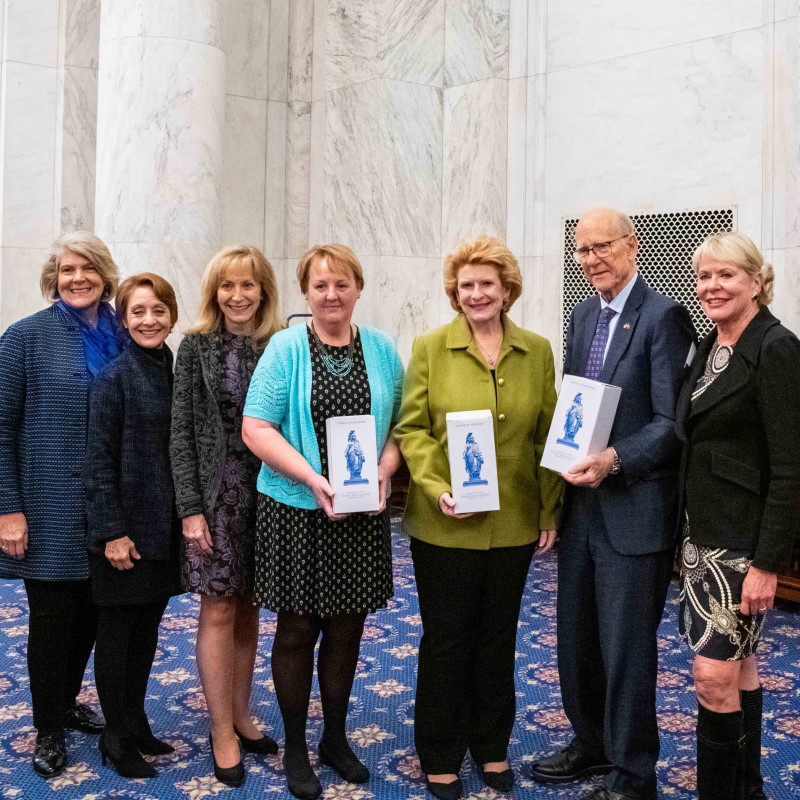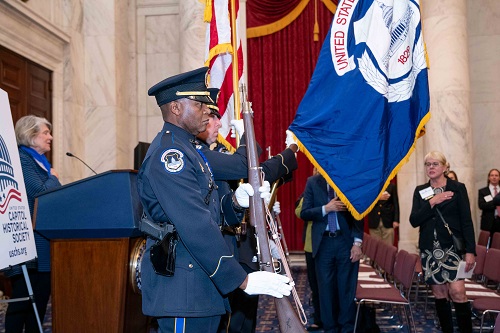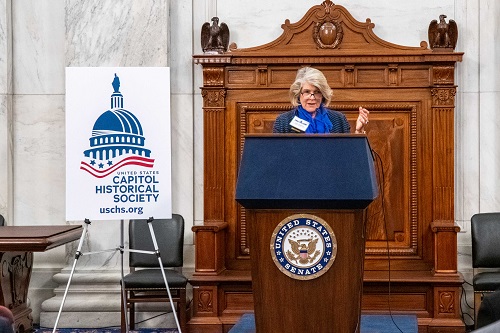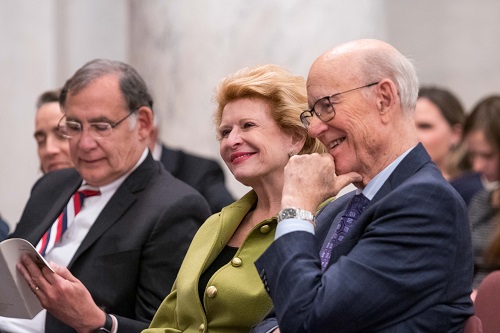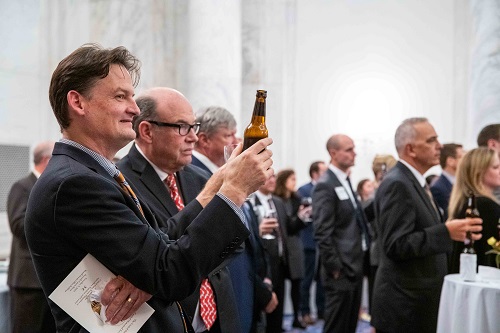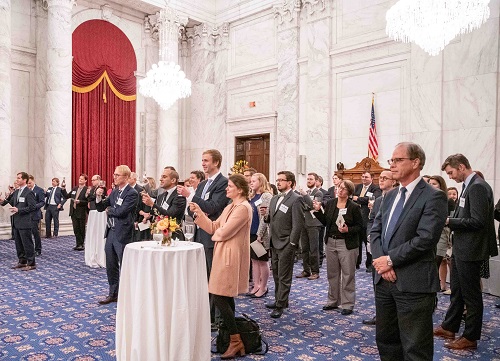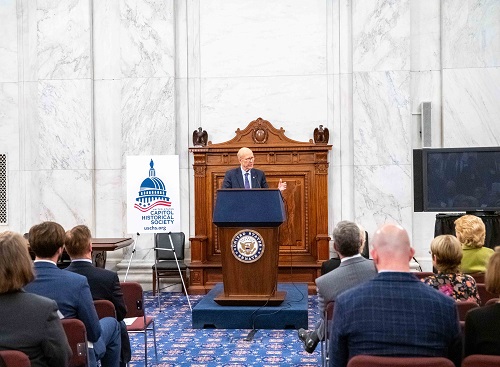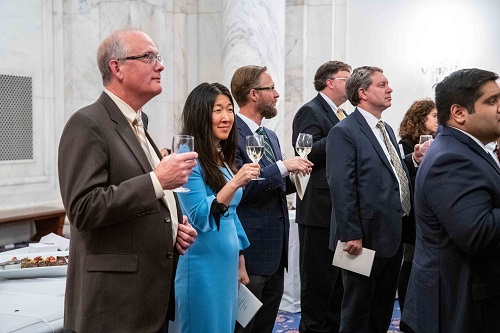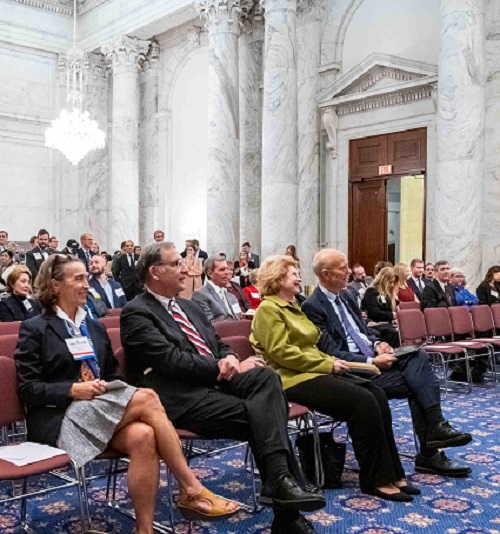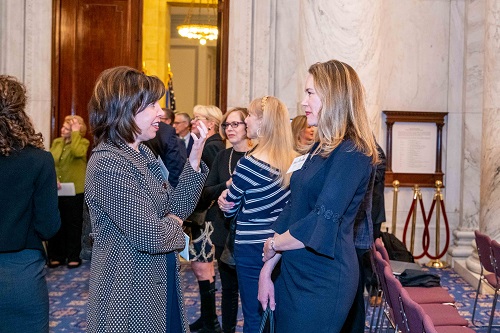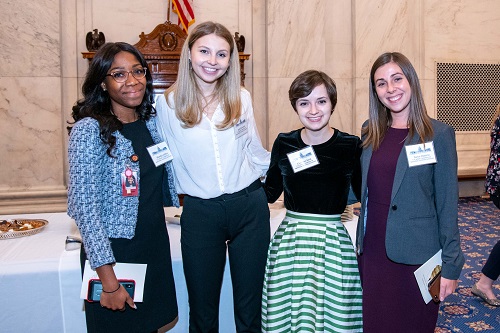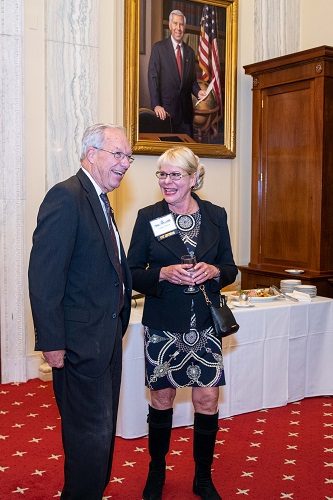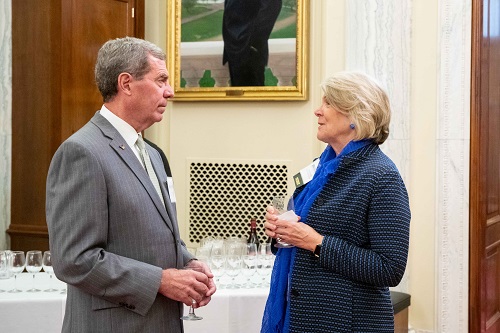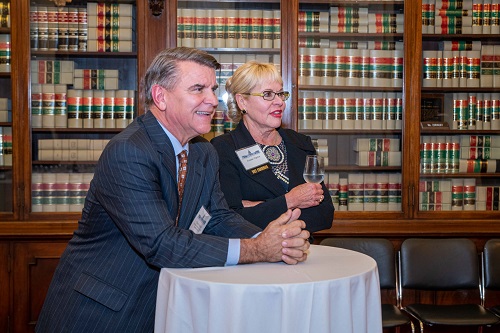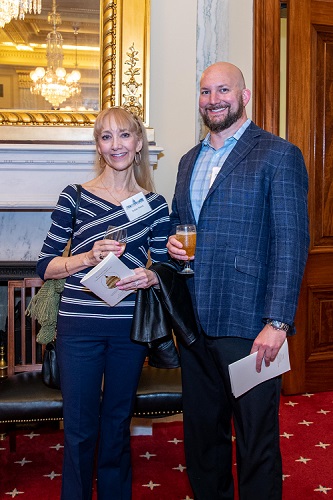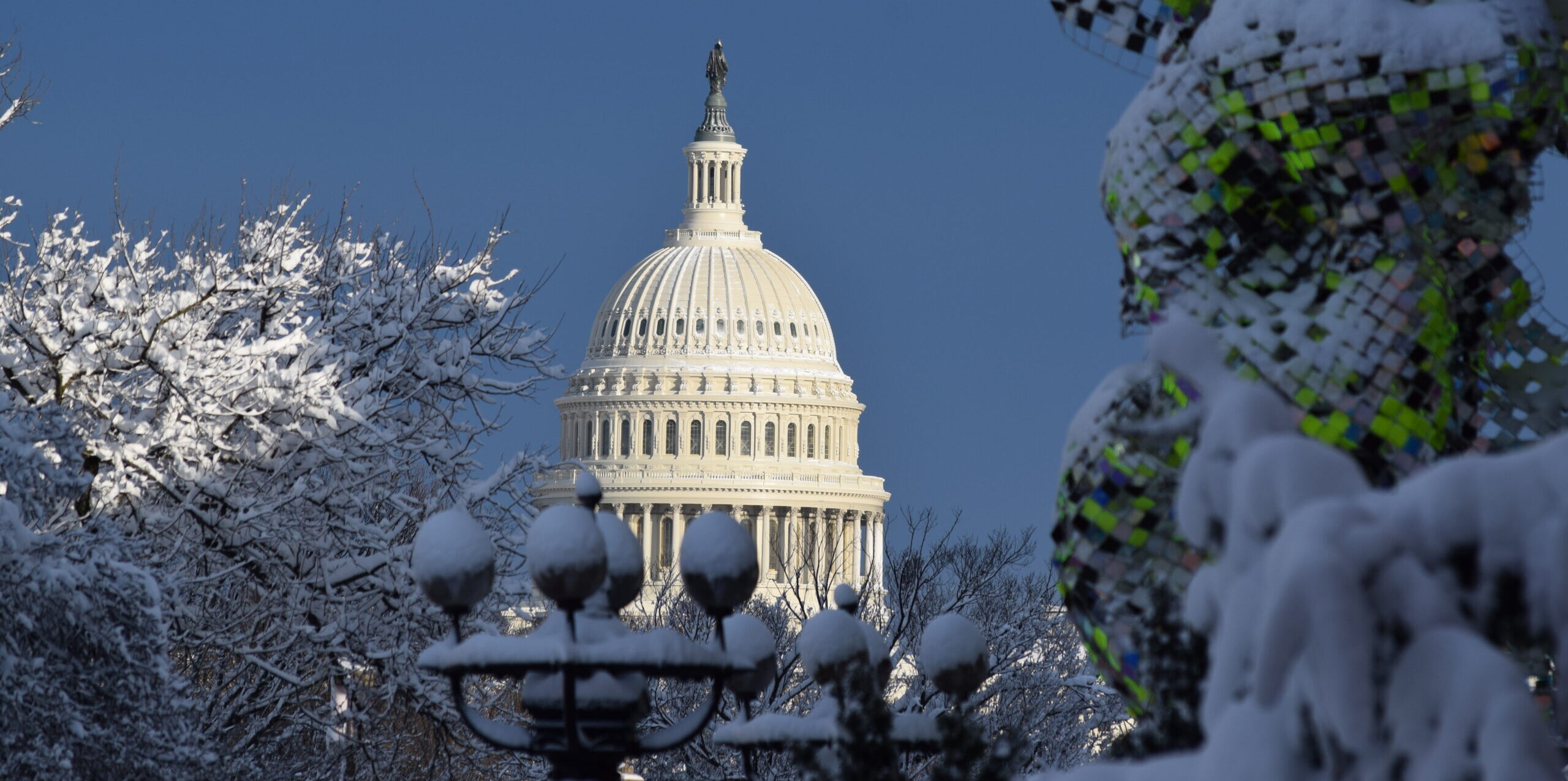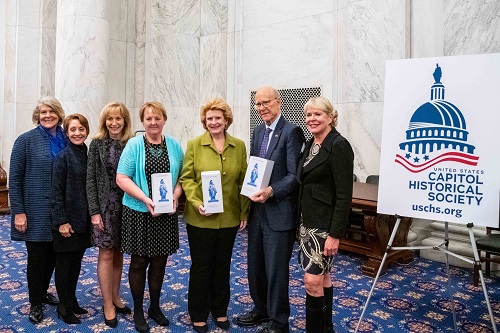
On Tuesday, November 5th, 2019, the United States Capitol Historical Society (USCHS) hosted a tribute to the U.S. Senate Committee on Agriculture, Nutrition, and Forestry. More than 100 people attended the special program in the beautiful and historic Kennedy Caucus Room of the Russell Senate Office Building.
Following the Presentation of the Colors by the U.S. Capitol Police Ceremonial Unit, the Honorable Jane L. Campbell, President/CEO of USCHS, led a recitation of the Pledge of Allegiance. Ms. Campbell then offered a toast to the committee recognizing wide variety of members and subjects the committee has encompassed. “The scope includes agriculture research and education, price stabilization, farm credit, crop insurance, commodity futures, food assistance, meat inspection, the forest service, soil and freshwater conservation, rural development, electrification, and supplemental nutritional programs including school lunch, biotechnology, climate change, and emerging technologies.”
Senator Pat Roberts of Kansas, Chairman of the committee, offered the next remarks on his history as an agricultural legislator. “Depending on who you talk to, there are members of the ag. committee who volunteer to serve or are sentenced to serve, but it’s a pleasant sentence and everyone takes the job very seriously,” said Chairman Roberts. “This committee is family. We gather around a single table for hearings and meetings, we travel to sit on the wagon and listen to our constituents on their home turf, and focus on what we can accomplish together… In times when we hear a great deal about gridlock and partisanship, I am proud that we have maintained a committee that has proved to be the exception.” Thanking USCHS for arranging the tribute, Chairman Roberts noted that the Society is “a valuable partner as we look to past events and people and decisions that shaped the policy decisions that face us going forward.”
Senator Debbie Stabenow of Michigan, Ranking Member of the committee, then spoke to the bipartisan friendships forged in service on the committee. “It’s a place where we really do leave politics at the door – it’s not just a saying – and we focus on things that affect people’s lives,” said Senator Stabenow. “We’re talking about kitchen-table issues that affect people every day. We want to sit in that room around the table and be able to talk to each other. I think that’s part of the power of our committee – being able to sit around the table and talk to each other in a real, human way.”
As the keynote speaker, Dr. Betty Koed, Historian of the U.S. Senate, shared stories from the impressive history of the Agriculture Committee. “As the nation grew more complex and its global footprint expended, so did the reach and the responsibilities of this important committee. Domestically, it pioneered food assistance programs that led to food stamps in the 1930s, a national school lunch program in the 1940s and other child nutrition endeavors. Internationally, the committee gained oversight over foreign food aid and originally what became known as the ‘Food for Peace’ program, which became the main source of food aid for the developing world by the late 20th century.” Dr. Koed noted that “in 1922 its entire staff was female… this early important role of women in Senate history has been long ignored but we are finally incorporating it into the broader institutional history of the Senate, and in that developing story the Agriculture Committee has played a very prominent role.”
In gratitude for their participation in the evening’s commemoration, Ms. Campbell presented each of the speakers with a replica of the Statue of Freedom made with Capitol marble sold by USCHS.
USCHS is grateful to the National Corn Growers Association, the American Sugar Alliance, and the National Association of State Departments of Agriculture for their generous support of this program.
A brief history of the U.S. Senate Committee on Agriculture, Nutrition, and Forestry — was prepared by USCHS Chief Historian William diGiacomantonio.

